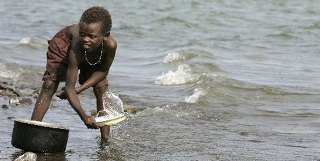Ethiopian officials reject UN calls to suspend controversial dam project
Tesfa-Alem Tekle
August 11, 2011 (ADDIS ABABA) – Ethiopian officials have dismissed a call by a UN’s World Heritage Committee to halt the construction of Gilgel Gibe III power plant project. The project team defended the dam on Thursday.

World Heritage sites are of outstanding cultural or natural importance to the common heritage of humanity and are conserved and catalogued accordingly.
The Ethiopian government claimed that it has undertaken thorough studies and taken precautionary measures to protect Lake Turkana; insisting to continue constructing the US$1.7 billion power project expected to generate 1,870 MW of electricity up on completion.
“The impact studies made by both local and international experts establish Gilgel Gibe III dam does not endanger Lake Turkana” Project manager Azeb Asnake said on Thursday reflecting country’s unchanged stand.
She asserted that the dam instead will have a positive effect on the lake and will regulate the water flow of the OmoRiver, preventing floods and raising the water level during dry seasons.
The World Heritage Committee which monitors World Heritage Sites worldwide called on China’s development bank and other financiers “to put on hold their financial support” until the Committee reviews this issue until the next annual meeting in June 2012.
“No matter what is reported, the project will continue, and financing of the project is certain as the Industrial and Commercial Bank of China has provided 470 million dollars, and the remaining might be covered by Ethiopia,” Misikir Negash, public relations officer for Ethiopia Electrical Power Co., told a local news paper, Fortune.
The projects is also facing protest from a number of environmental groups who argue that as well as having a devastating impacts on the Omo River and Lake Turkana, the project will also effect 500,000 indigenous people who depend on the river and lake for their livelihoods.
Recognised and protected as a World Heritage Site in 1997, Lake Turkana in Kenya and Ethiopia, is the world’s largest permanent desert lake and the world’s largest alkaline lake. According to the World Heritage Committee, its unique ecosystem has made it “an outstanding laboratory for the study of plant and animal communities.”
Having a total of nine recognised World Heritage sites; Ethiopia is currently among the 21 members of the World Heritage Committee.
(ST)
